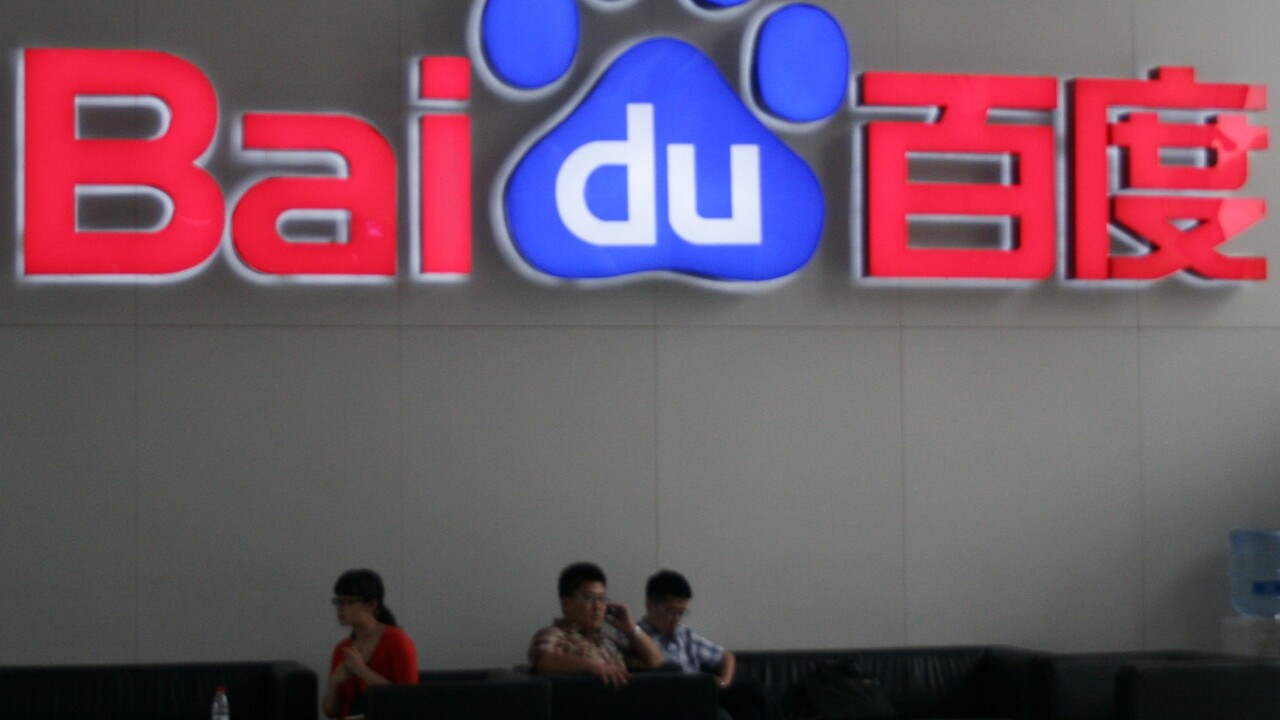
While Chinese search titan Baidu has certainly built itself up as an Internet startup with Chinese characteristics, it has also drawn inspiration from Silicon Valley culture. Its headquarters in Beijing are a testament to that fact.
Baidu’s sights are set on the top. The company is already the undisputed leader of the Chinese search market, but its ultimate goal is to become the “world’s biggest media company,” according to Kaiser Kuo, its director of international communications.
Co-founder and CEO Robin Li has said he plans to make Baidu a household name in half of the world’s Internet markets in the next ten years. With recent moves into Southeast Asia and Brazil, the company has already put its overseas plan into action.
Baidu is relying on the cloud to get there. By its own reckoning, it already operates the biggest cloud in China, and the company is actively seeking out developers and partners for its “Baidu Cloud” OS, which is built on top of Google’s Android. It has already teamed up with Dell and Changhong and is in talks with more than 20 manufacturers.
The Bear Paw
On a recent tour of the 91,000-square-meter Baidu headquarters in northwest Beijing, I definitely felt the similarities to the headquarters of other Internet companies in the California Bay Area. Kuo tells me that’s no accident.
Li and fellow co-founder Eric Xu both spent time in the Bay before returning to China to start Baidu. Legend has it that Xu and Li worked together on a documentary about American innovation and were so inspired by what they saw that they decided to build a Chinese search engine.
The facilities opened up in late 2009 and now house roughly 5,000 of the company’s over 17,000 employees. Hamish Mackenzie has been told the building is shaped like a search box, though it’s not clear to me what the difference between that and a rectangle is.
The ceiling of the lobby has a massive bear paw, a nod to the company’s logo, as well as a screen showing real-time searches being made on Baidu.
Upstairs, the paw turns out to be a series of pods, including an auditorium, nap rooms and women’s and mothers’ lounges. I forgot to ask whether they double as escape pods, but, frankly, I wouldn’t be surprised.
According to Kuo, there are 42 lounges on site to foster group work among employees. Baidu hires the majority of its workers straight out of undergraduate and master’s programs, so the average age at the company is just 26.
Other facilities on campus include a doctor, yoga rooms, and a cafeteria that feeds up to 1,200.
So far, Baidu’s work culture seems to be paying off. The company posted better-than-expected revenue of $859 million and earnings of $1.26 per share in its most-recent quarter. With a lofty target of deriving half its revenue outside of China by 2020, Baidu has given its employees the huge task of accomplishing an unprecedented international expansion in a few short years.
From the looks of it, the company’s ‘bear paw’ headquarters should help put that goal within reach.
Photos by TNW
Get the TNW newsletter
Get the most important tech news in your inbox each week.








